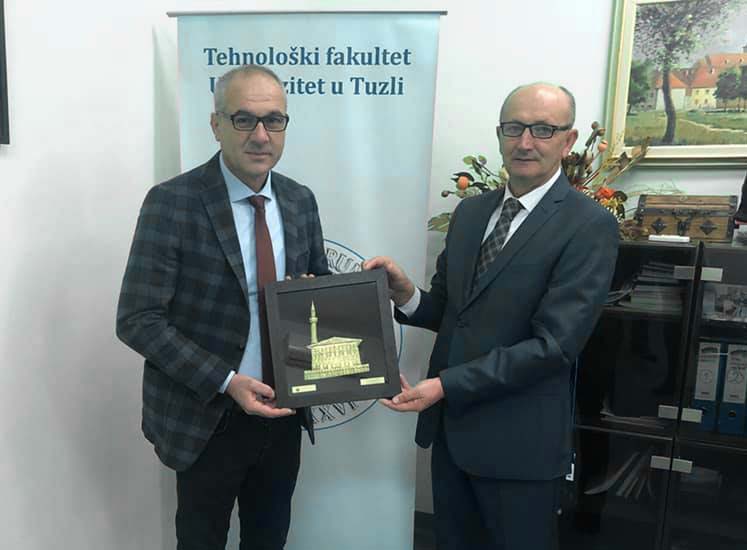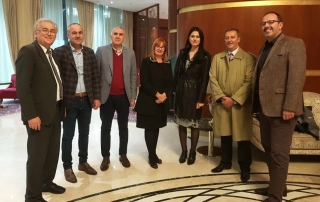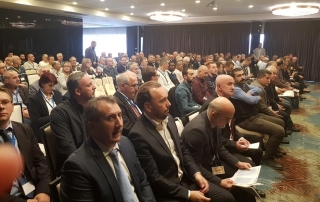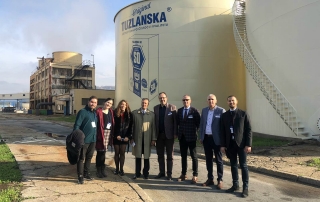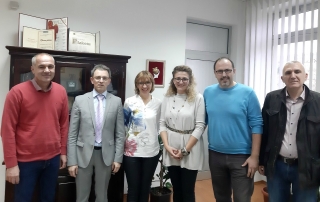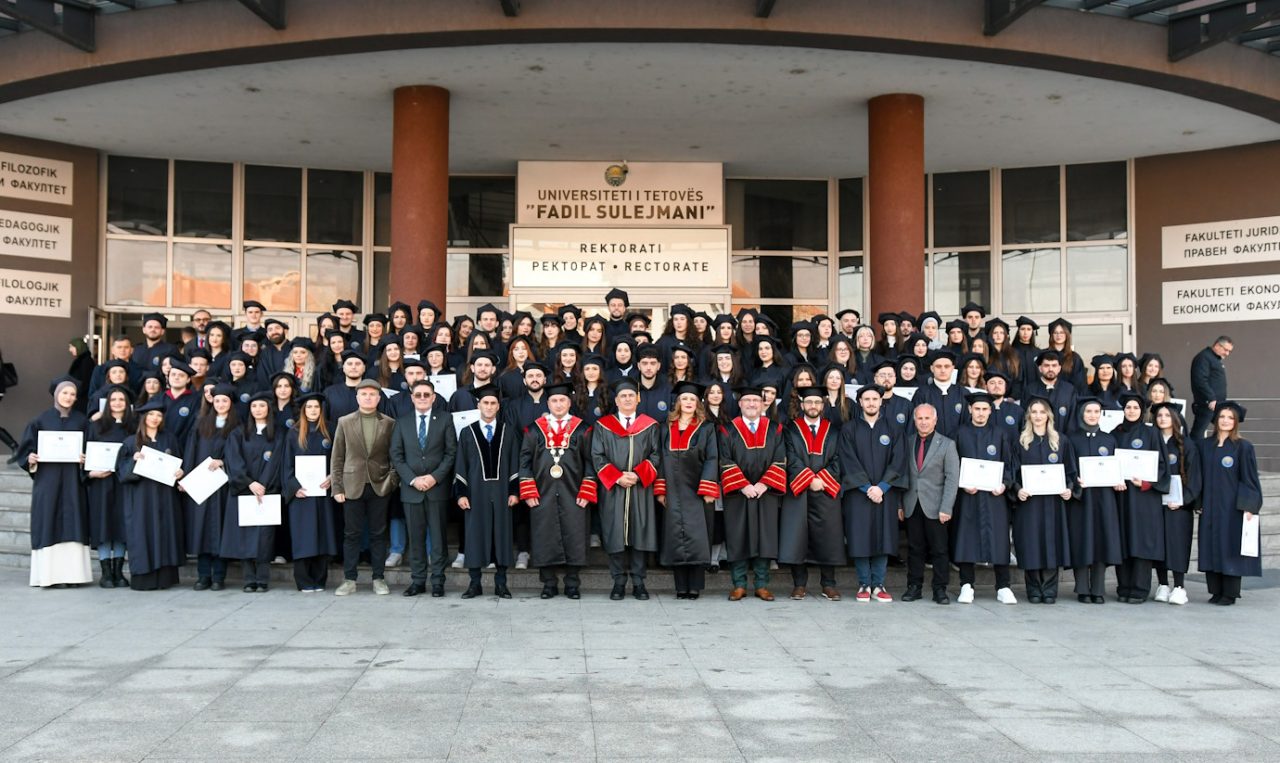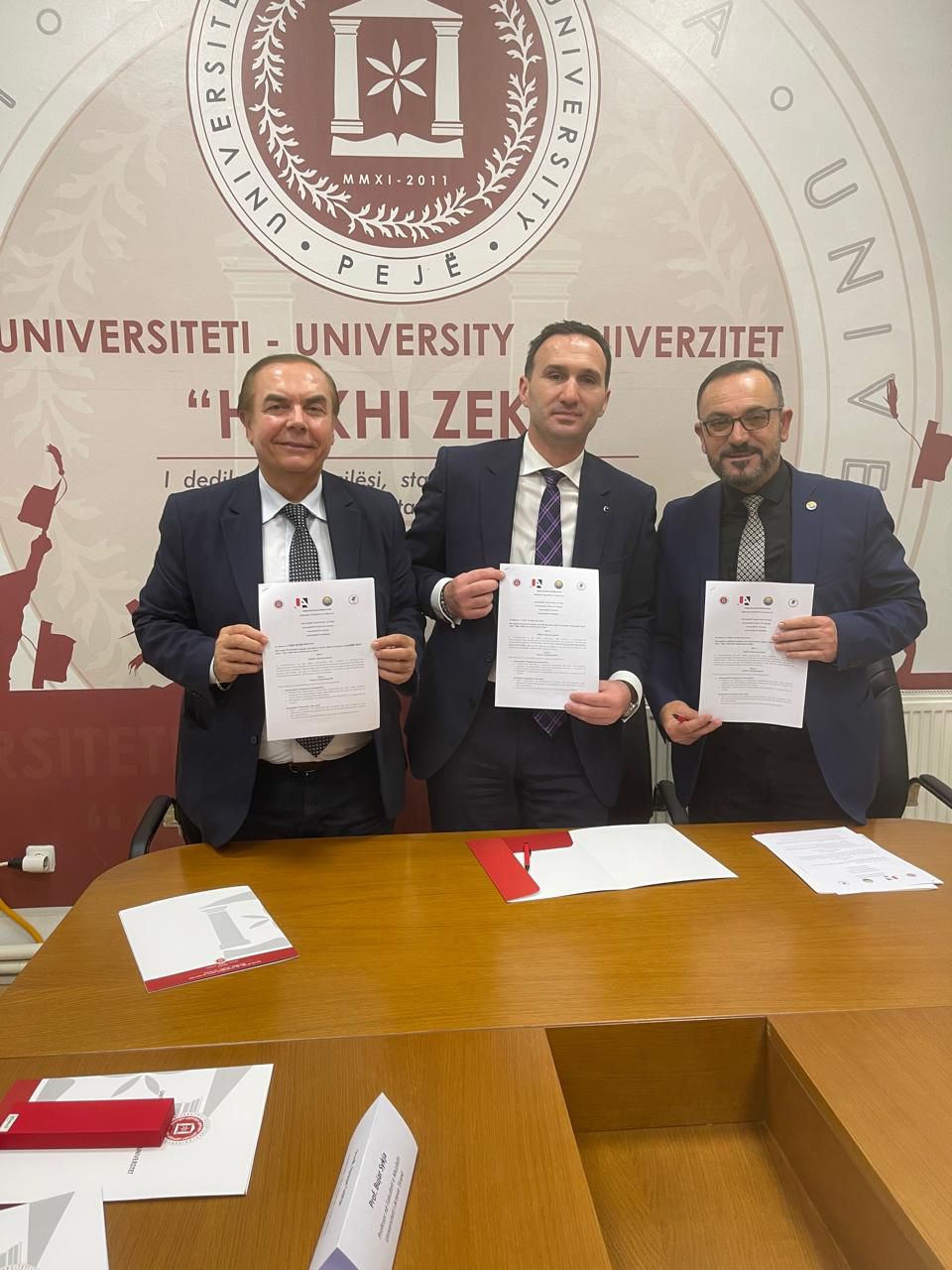A delegation of the Faculty of Food Technology and Nutrition of the University of Tetova, headed by the Dean, Prof. Dr. Xhezair Idrizi, Prof. Dr. Erhan Sulejmani and Prof. Dr. Gafur Xhabiri conducted a working visit in several universities in Bosnia and Herzegovina. Initially, they stayed at the University of Tuzla, where they were invited to attend the 60th anniversary celebration of this faculty. On this occasion they had a friendly meeting with the Dean of the Faculty of Technology of this university, Prof. Dr. Sead Ćatić, with whom they discussed the recent developments in the two faculties, including some topics related to educational and scientific issues. Dean of the Faculty of Food Technology and Nutrition, Prof. Dr. Xhezair Idrizi, at the end of the meeting, in a sign of gratitude and respect, to the Prof. Dr. Sead Ćatićit bestowed a gift with one of the symbols of the city of Tetova, the Pasha Mosque (Xhamia e Larme).
Afterwards, they jointly participated in the celebration of the 60th anniversary of the foundation of the Faculty of Technology of the University of Tuzla, which was also attended by representatives of the Government of the Tuzla Canton, deans and Vice-Deans of the faculties of the University of Tuzla, from the University of Zagreb, University of Novi Sad, the University of Banja Luka, as well as numerous guests from public institutions and economic entities from Bosnia and Herzegovina.
On this occasion was held a greeting speech by the Dean of the Faculty of Technology in Tuzla, Prof. Dr. Sc. Sead Ćatić, Minister of Education and Science of the Tuzla Canton, Mr. Sci. Fahreta Brašnjić and Prof. Dr. Sci. Sadik Latifagić – as the first registered student of the Faculty of Technology.
While from November 16 to 17, the leaders of the UT Faculty of Food Technology and Nutrition participated in the 4th Beekeeping Congress that was held in Sarajevo, with 200 participants from Britain, Turkey, Slovenia, Croatia, North Macedonia, Serbia and Bosnia and Herzegovina. The congress was focused on standardizing bee products and apitherapy.
During this period the leaders of the Faculty of Food Technology and Nutrition conducted a working visit with the Dean of the Faculty of Food Technology in Sarajevo, Prof. Dr. Muhamad Brka and Vice-Dean of Science, Prof. Dr. Enisa Omanović.
In this meeting was discussed about the latest developments at the Faculty and the University of Sarajevo, where priority was given to the harmonization of study programs based on labor market demands and needs with technological and economic developments.
Afterwards, they jointly participated in the celebration of the 60th anniversary of the foundation of the Faculty of Technology of the University of Tuzla, which was also attended by representatives of the Government of the Tuzla Canton, deans and Vice-Deans of the faculties of the University of Tuzla, from the University of Zagreb, University of Novi Sad, the University of Banja Luka, as well as numerous guests from public institutions and economic entities from Bosnia and Herzegovina.
On this occasion was held a greeting speech by the Dean of the Faculty of Technology in Tuzla, Prof. Dr. Sc. Sead Ćatić, Minister of Education and Science of the Tuzla Canton, Mr. Sci. Fahreta Brašnjić and Prof. Dr. Sci. Sadik Latifagić – as the first registered student of the Faculty of Technology.
While from November 16 to 17, the leaders of the UT Faculty of Food Technology and Nutrition participated in the 4th Beekeeping Congress that was held in Sarajevo, with 200 participants from Britain, Turkey, Slovenia, Croatia, North Macedonia, Serbia and Bosnia and Herzegovina. The congress was focused on standardizing bee products and apitherapy.
During this period the leaders of the Faculty of Food Technology and Nutrition conducted a working visit with the Dean of the Faculty of Food Technology in Sarajevo, Prof. Dr. Muhamad Brka and Vice-Dean of Science, Prof. Dr. Enisa Omanović.
In this meeting was discussed about the latest developments at the Faculty and the University of Sarajevo, where priority was given to the harmonization of study programs based on labor market demands and needs with technological and economic developments.

